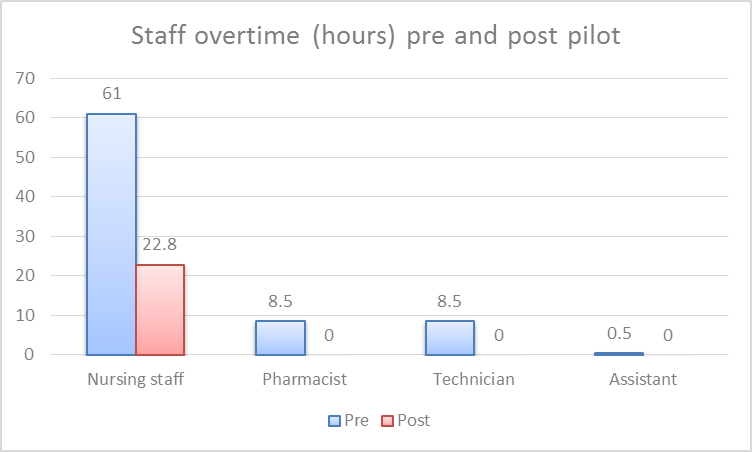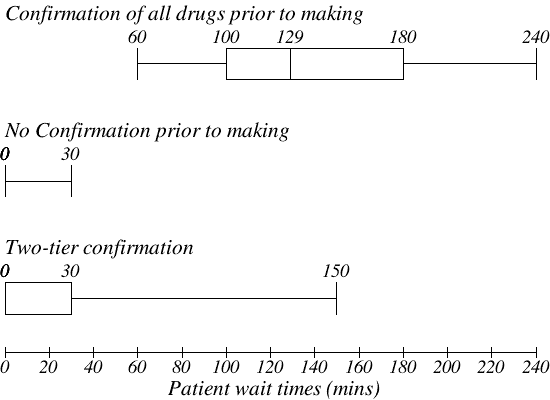Prof Vicky Mabin is one of the authors that have been awarded the Griffiths Medal for their paper Using the Theory of Constraints to resolve long-standing resource and service issues in a large public hospital. See below for more details. Congratulations to Vicky and her fellow authors.
“Congratulations to Prof Vicky Mabin, Julie Yee, Sally Babington, Dr Vanessa Caldwell, and Robyn Moore for being awarded the Griffiths Medal by The Operational Research Society. Based in the UK, the ORS is the oldest and biggest OR society in the world representing a profession at the very heart of analytics.
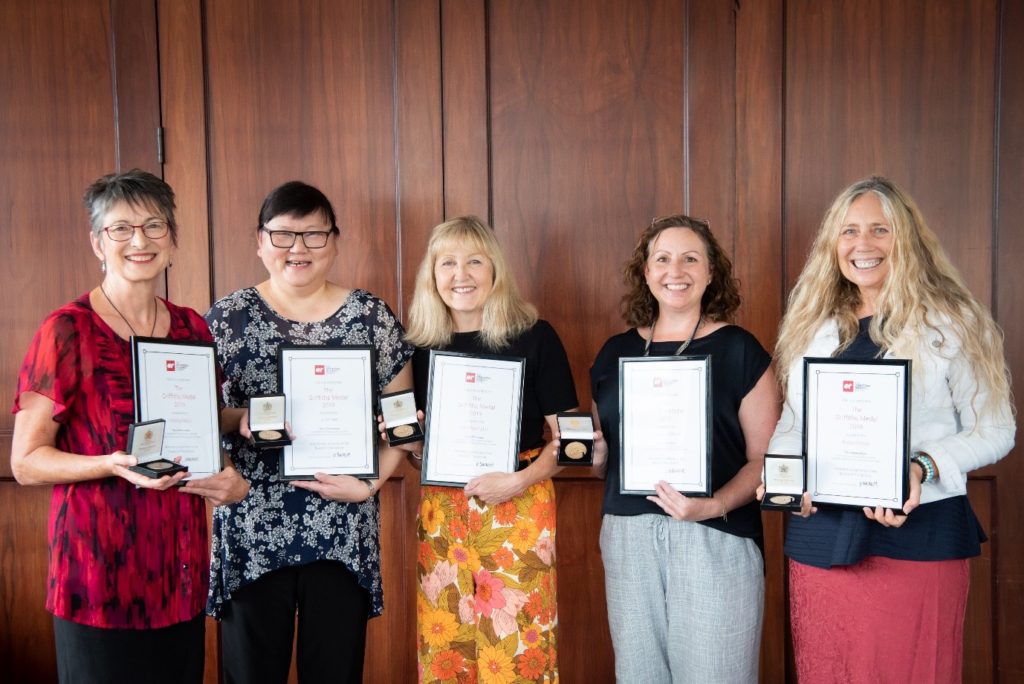
From left: Prof Vicky Mabin, Julie Yee, Sally Babington, Dr Vanessa Caldwell and Robyn Moore, Griffiths Medal winners for 2019.
The Griffiths Medal 2019 is awarded by The OR Society for the best paper in Health Systems journal in the preceding two years.
If you think that the only way to improve health services is by adding more resources, think again! The paper describes how we used Theory of Constraints (TOC) to address the resourcing issues caused by rising demands and fixed budgets that plague public hospitals everywhere. A pilot implementation changed the decision rules for determining when the pharmacy supplied chemotherapy drugs. This led to an improvement in average patient wait times of 87%, 37% increase in production, two-thirds (67%) reduction in nursing overtime, reduced stress levels, while drug costs were held constant. The resulting two-tier system has been in place and working well for over 12 years.
As the Griffiths Medal winner, the paper is free to access for a year
https://think.taylorandfrancis.com/journal-prize-griffiths-medal-health-systems/
Using the Theory of Constraints to resolve long-standing resource and service issues in a large public hospital. Health Systems 7(3), 230-249
Keywords: Theory of Constraints (TOC); change; Operations research; health services; problem structuring; resource conflicts; Chemotherapy; Hospital; Health services
In 2006, Julie, Sally and Vanessa undertook an initial thorough analysis using TOC with Vicky’s guidance as part of an MBA Problem Solving and Decision Making course that Vicky taught. Julie led the pilot implementation in the hospital in 2007, Robyn helped compile the paper and with Vicky, undertook further research to see the paper through to publication in Health Systems. Julie now works for ACC, Vanessa for Mid-Central DHB, Sally for DOC, while Robyn is an operations researcher and local business owner.
The path to publication was a long and unusual one. Believe it or not, an earlier conference paper describing this project was copied extensively without any acknowledgement, amounting to an alarming case of plagiarism. While the journal supported our complaint and immediately removed the offending paper, after revision by the authors Syed Amin Tabish and Syed Nabil to delete all traces of our work, incredibly, their paper was reinstated. We were therefore particularly gratified to have our paper published in the reputable Health Systems journal, and especially delighted to receive the Griffiths Medal.”
Some diagrams from Vicky’s paper:
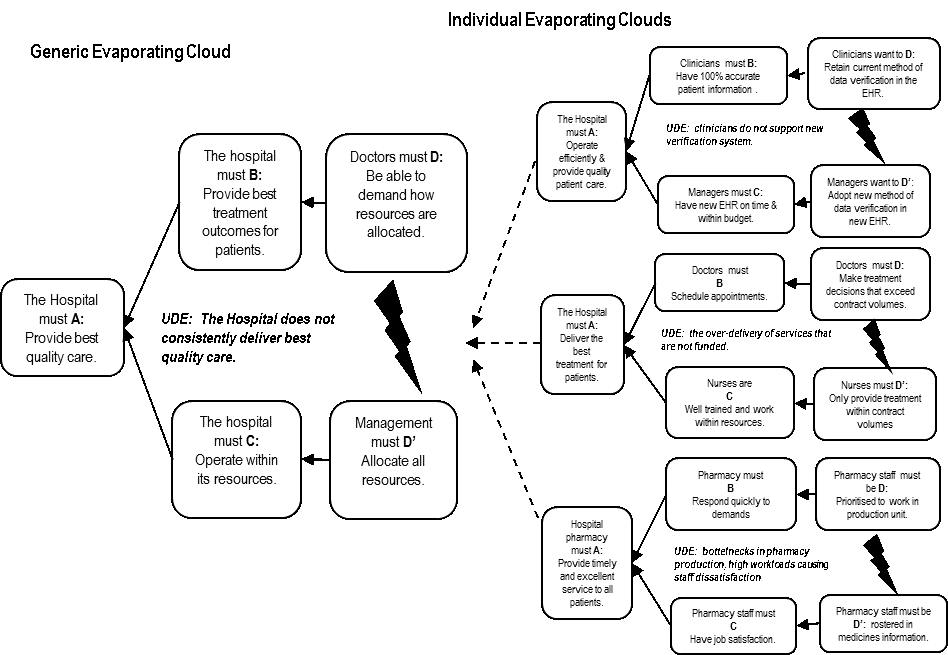
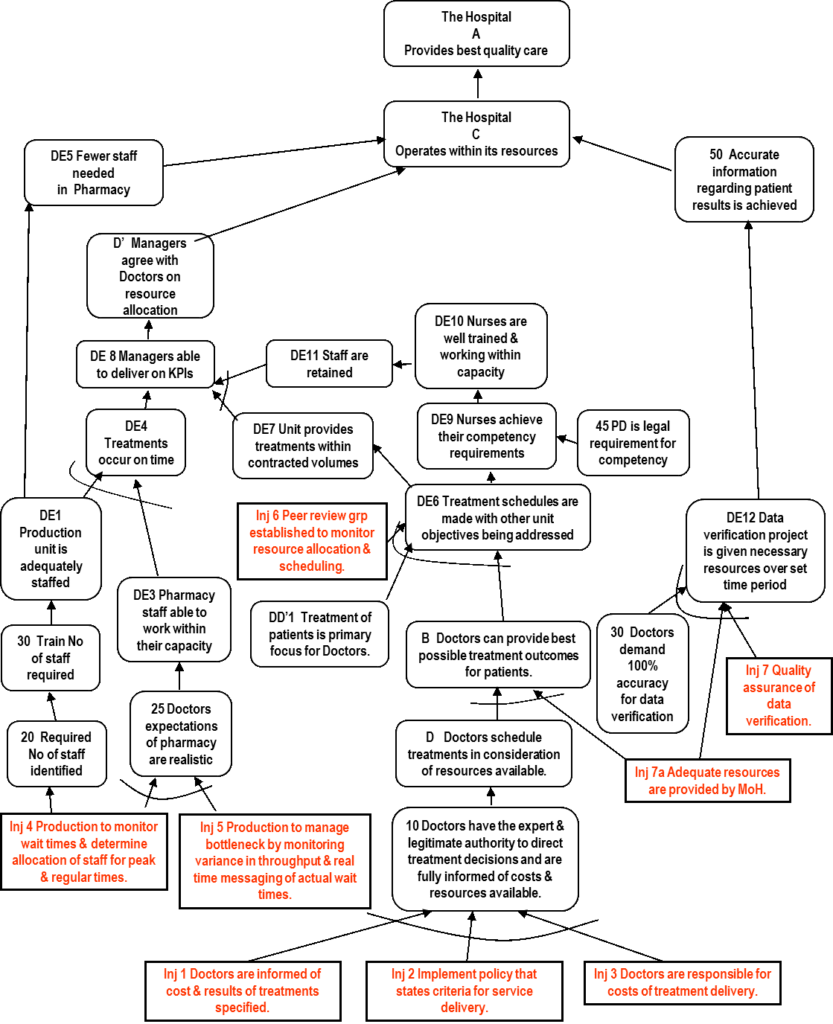
The research changed the situation from this:
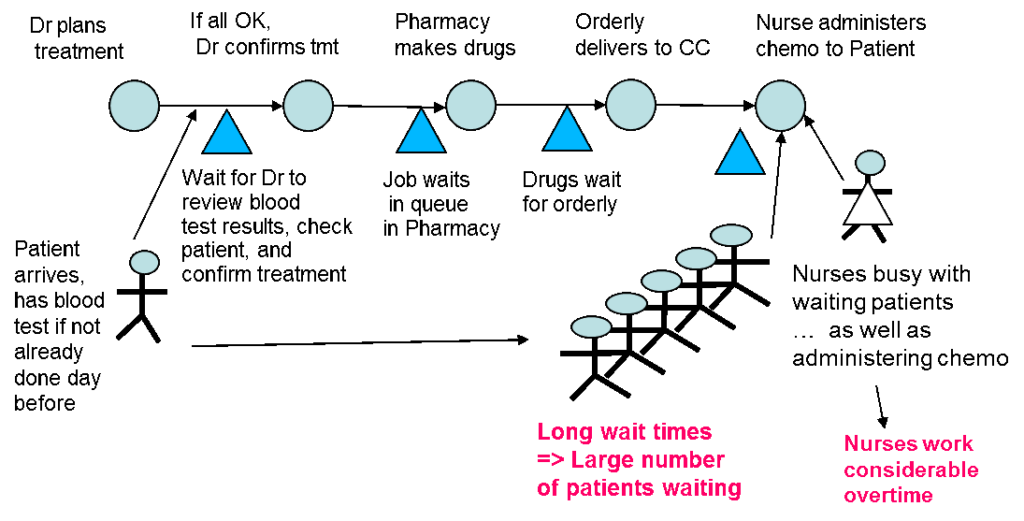
to this:
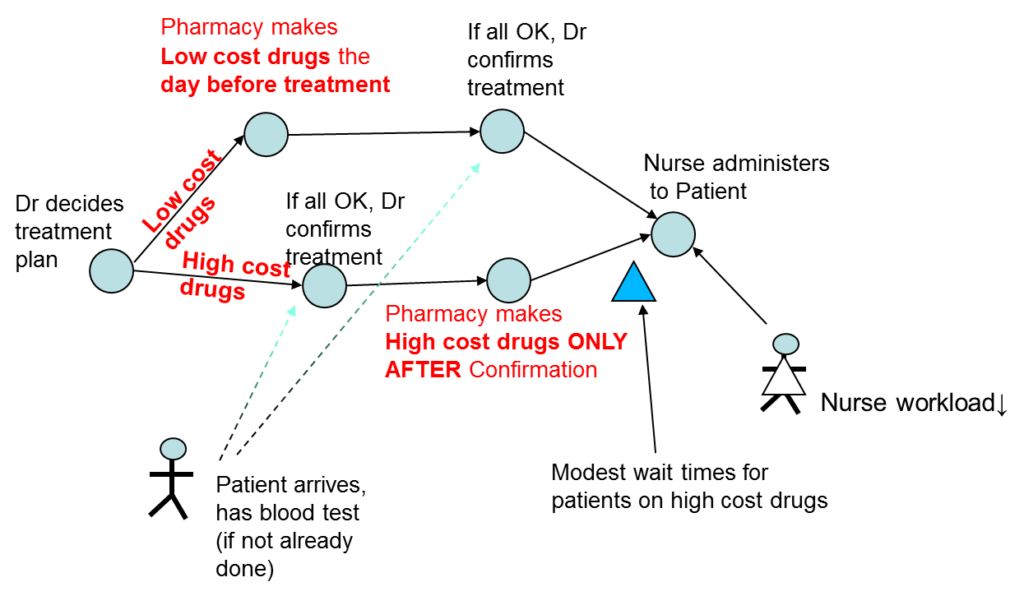
giving the following results:
